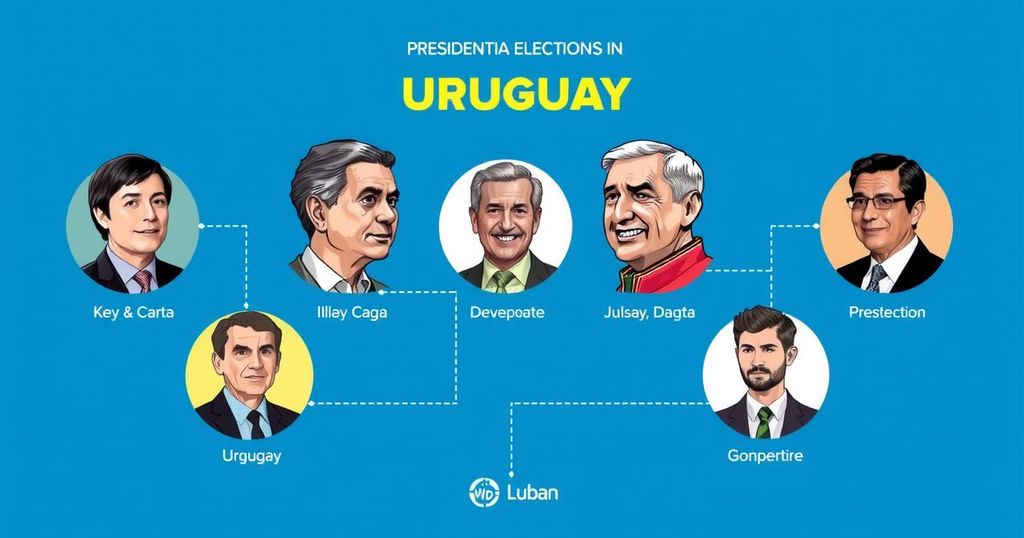Uruguay will hold elections on Sunday to choose a new president amid crucial issues such as crime, child poverty, and an aging population. The election will determine the future of the conservative coalition or the moderate leftist alliance. This election signifies a pivotal moment in addressing pressing social problems and potential international trade relations.
On Sunday, Uruguay is set to conduct pivotal elections to select its next president amidst a backdrop of notable political and economic stability within Latin America. With a population of approximately 3.4 million, Uruguayan voters are facing significant concerns, including rising crime rates, child poverty, and the challenges posed by an aging demographic. This election is particularly significant as it will ultimately determine whether the current conservative coalition, led by President Luis Lacalle Pou, continues to hold power, or if the moderate leftist alliance, which governed from 2005 to 2020 and enacted progressive measures such as the legalization of marijuana and enhancement of green energy initiatives, will reclaim leadership. Due to constitutional term limits, President Lacalle Pou, 51, is ineligible for re-election. His potential successors include candidates whose platforms will inform the nation’s direction amidst pressing social concerns. The leftist candidate, Yamandú Orsi, has indicated a preference for engaging in trade negotiations with China through Mercosur, a regional alliance of South American nations, should he emerge victorious, potentially placing a prospective trade agreement with China on indefinite hold. Regardless of the outcome, the incoming administration will need to effectively address the challenges of a burgeoning drug trade impacting the country and its foundational peace, alongside systemic issues such as poverty and the implications of an aging population for social services.
Uruguay is recognized as one of Latin America’s more stable democracies, characterized by a strong commitment to civil discourse and policy-driven debates rather than personal attacks. This climate of civility is underscored by the contrasting electoral methodologies observed in various other nations, notably the United States. The current electoral cycle arrives as the country grapples with serious internal issues that include drug-related violence and socio-economic disparities among the populace, particularly among the youth. The significance of this election lies not only in the political affiliations of the candidates but also in their intended policy directions that could shape Uruguay’s future engagement in international trade and domestic welfare initiatives.
In conclusion, Uruguay’s upcoming elections signify a critical juncture in the nation’s political landscape, presenting voters with stark choices that may redefine governmental policies on significant issues such as crime, poverty, and international relationships. The outcomes will not only dictate the immediate political framework but also serve as a bellwether for the public’s aspirations regarding social welfare and economic stability in the years to come.
Original Source: www.nytimes.com







